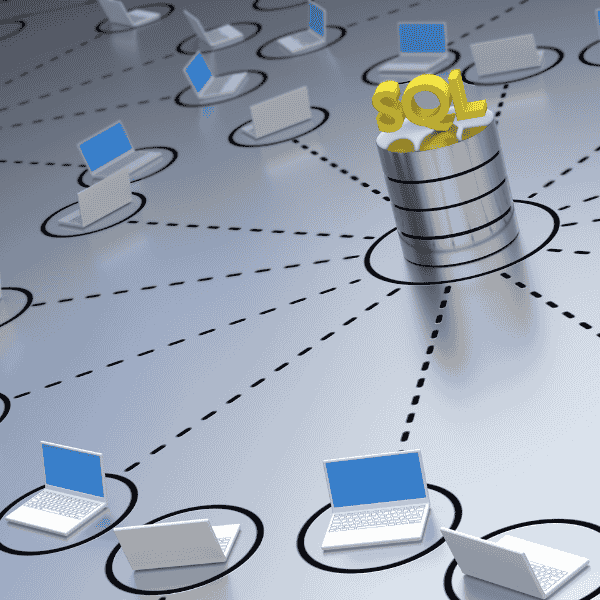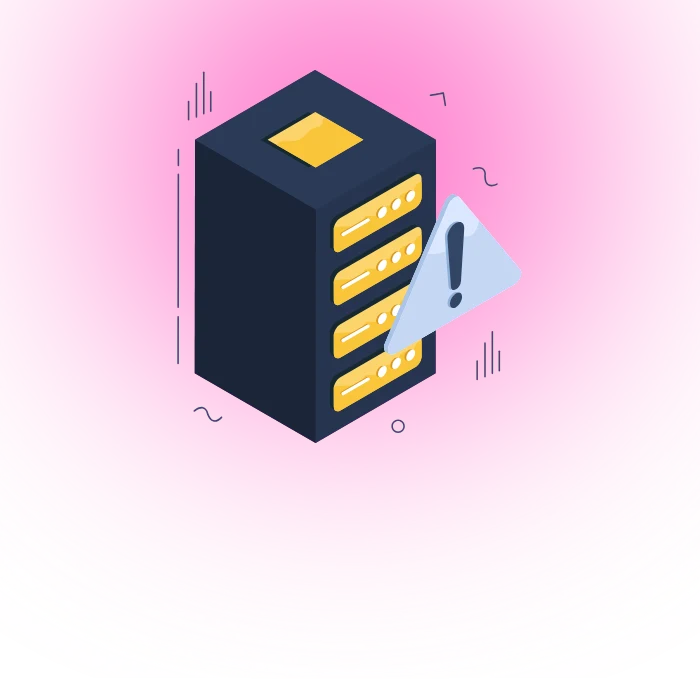What is the data science and why it matters ?
Data science helps Developers turn messy information into decisions that reduce risk, cut time, or grow revenue. Clear questions, careful data work, and testable models create trust that executives can act on.
Importance of data science in AI development
AI systems need curated data, consistent labeling, and feedback loops. Data science teams design sampling plans, detect leakage, and define success metrics, so AI learns patterns that survive production noise, not just classroom demos. Production AI without measurement gets flashy and brittle fast. Good DS keeps it grounded.
Role of data scientists in a user friendly website
Data scientists guide UX through evidence. Heatmaps, funnels, and cohort metrics reveal where users wander, hesitate, or bounce. DS pairs with designers to test layout changes, simplify forms, and tune search ranking so pages feel quicker and clearer. Users feel the benefit as fewer clicks and less mental load.
Benefits of a structured learning roadmap
Structured learning keeps momentum when topics feel wide and messy. Sequencing math, code, and projects reduces context switching and cuts dead time. Feedback milestones protect You from “course collecting” paralysis. A roadmap becomes a hedge against burnout and helps You explain progress to a hiring manager.
How to become data scientist with no experience
Breaking in without prior experience means small, visible projects, one language, and honest timelines. Pick a weekly study block, one public repo, and a domain You care about. Momentum beats breadth here.
Prerequisites for beginners in data science
Strong comfort with spreadsheets, SQL basics, and plotting simple charts sets a baseline. Learn to ask a narrow question, fetch the right slice of data, and write a two-paragraph findings note. Clear notes matter more than fancy models for your first month. Keep scope tiny and finish things.
Foundational math and statistics to focus on
Focus on probability distributions, expectation, variance, and conditional probability. Learn the logic of hypothesis tests and why confidence intervals tell a range, not a guarantee. Linear algebra basics help with embeddings and regressions. Calculus helps with gradients, but begin where questions meet data first.
First programming languages for aspiring data scientists
Python wins for libraries and community. R shines for quick stats and plotting. Pick one for six months. Write scripts that load CSVs, clean strings, merge tables, and produce one chart per question. Comfort with Git, virtual environments, and package pinning prevents “works on my machine” pain later.
Essential skills every data scientist must master
Daily work blends data literacy, careful cleaning, model thinking, and clear reporting. Skill grows by shipping small analyses often, not by chasing every new framework.
Core Python and R concepts for real projects
Master data frames, indexing, joins, groupby, and vectorized transforms. Learn plotting that communicates, not just decorates. Testing functions that compute metrics avoids silent errors. Dependency management and simple CLIs help teammates run your code. Tiny utilities save hours across a quarter.
Data cleaning and preprocessing best practices
Cleaning drives outcomes more than fancy models. Handle missingness with simple rules, standardize units, and fix date zones. Create checks for duplicate IDs and odd spikes. Log every transformation with comments and small tests. Reproducibility beats cleverness when bugs surface during reviews.
Machine learning basics for industry use cases
Start with linear models, trees, and gradient boosting. Focus on evaluation: temporal splits, cross-validation, and cost-weighted metrics. Avoid leakage with strict feature timelines. Document assumptions in a short README. Teams prefer models that explain failure modes over models that only sparkle on one metric.
Building models that work for a user friendly website
Web models must respect latency, privacy, and cold starts. Favor features available at request time, cache heavy lookups, and track drift. Add guardrails for empty sessions and bots. Present gains in clicks saved or form completions, not just AUC. Product wins come from faster paths, not complex math.
What tools and technologies are needed for data science
Tools should shorten feedback cycles and reduce toil. Pick few, learn deeply, and automate habits like linting and data checks.
Popular IDEs and coding environments
VS Code with Python extensions or RStudio gives fast feedback. Notebooks help exploration, scripts help reuse. Pair notebooks with tested modules so analysis stays tidy. Environment files and Makefiles keep runs predictable on fresh machines, which saves time for the next teammate.
Data visualization and dashboard tools
Matplotlib or ggplot for static plots, Plotly for interactive views. Dashboards with Streamlit or Power BI answer recurring questions without manual exports. Keep defaults simple, avoid chart junk, and label units clearly. Stakeholders engage more when charts speak human, not lab report.
Cloud and big data platforms every data scientist should know
Know one cloud’s basics for storage, compute, and schedulers. Spark helps with wider-than-memory data. Managed warehouses like Snowflake or BigQuery reduce ops load for analytics work. Pick a stack your org already uses so access and support match your speed.
Best roadmap for learning machine learning and AI step by step
Learning sequence matters. Move from tidy datasets and tabular models to text or images later. Ship small wins that force evaluation discipline before deep networks.
Supervised learning and unsupervised learning approaches
Supervised learning predicts labeled targets. Classification and regression help with churn, fraud, and pricing. Unsupervised learning groups items by similarity to explore structure and compress noise. Clustering aides discovery, not truth. Clear outcomes, split plans, and error bars keep both approaches honest.
Deep learning vs traditional machine learning
Deep learning excels with large data and rich signals like language, vision, or audio. Tabular business data still rewards smaller models with careful features. Training time, inference cost, and observability push many teams to simpler models first. Use deep nets when signal demands it, not for fashion.
How AI powers a seamless and user friendly website
AI ranks content, personalizes products, and prevents friction with smart defaults. Relevance boosts, query intent fixes, and typo tolerance raise conversions. Guard for fairness and feedback loops so models do not bury new items forever. Instrument journeys so gains survive outside test weeks.
How to gain practical experience in data science projects
Hands-on projects beat passive learning. Short cycles, clear deliverables, and public notes build credibility and memory.
Kaggle and open source project participation
Kaggle teaches baselines, feature design, and error analysis under pressure. Public notebooks become living resumes. Contributing to open source builds teamwork and review skills, key in production DS. Balance leaderboard chase with write-ups that show your thinking.
Building a personal portfolio with real datasets
Curate 3–5 small projects with business framing, clean repo, and one-pager results. Pick local data like city bikes, civic budgets, or support tickets. Show how choices change outcomes. Recruiters skim, so keep readmes tight and charts readable. Quality beats volume every single time.
Collaborating with AI developers and engineers
Joint work with Backend Developers clarifies SLAs, retries, and logging. Pair with MLEs on feature stores and deployment paths. Share contracts for input schemas and versioning. Small alignment up front prevents long “it broke on prod” weeks later.
Why domain knowledge is critical for data scientists
Domain context shapes features, constraints, and how errors hurt users. Accurate intuition about costs often decides model success more than another percent of accuracy.
Business context and industry relevance
Speak the language of the team You serve. In e-commerce, margins and returns dominate decisions. In SaaS, retention and seat expansion matter most. Map model metrics to money or risk. Clear translation earns trust in rooms where no one cares about ROC curves.
Use cases of data science in healthcare and finance
Healthcare values safety, audit trails, and bias checks. Finance requires latency limits, explainability, and strict backtesting. DS adapts evaluation and monitoring to regulation. Teams that document controls move faster during reviews and cut compliance friction for launches.
Understanding user experience in product decisions
Numbers steer UX when they blend behavior and sentiment. DS helps product avoid local maxima by testing bold variants and measuring long-term effects, not only short clicks. Mixed methods bring depth: logs show what users do, surveys show what they felt. Together, choices improve.
How to build a user friendly website with data science insights
Websites improve through personalization, fast feedback, and measured experiments. DS keeps tests honest and deploys changes behind toggles for safe rollout.
Personalization and recommendation systems
Start with simple popularity-and-recent models, then move to embeddings or matrix factorization. Cold starts need fallback rules and clear diversity boosts. Explanations like “because You viewed X” improve trust. Over-personalization can trap users; add serendipity.
Measuring user engagement with predictive analytics
Define events that matter, like retained sessions or completed tasks. Predict risk of churn or cart drop and trigger helpful nudges, not spam. Calibrate scores with reliability plots. Teams win when predictions feed actions users actually welcome.
Improving website performance with data driven testing
Instrument time-to-interactive, LCP, and error rates. Experiment with smaller images, prefetching, and lighter JS. Share dashboards that tie speed to conversion. Performance creates UX gains that users feel in quiet ways, the best kind of improvement.
What are the career paths for data scientists today
Roles split by depth in stats, scale of data, and distance from product surfaces. Path choice depends on how You like to work day to day.
Data analyst vs machine learning engineer
Data analysts own reporting, ad-hoc studies, and dashboard design. MLEs build pipelines, train models, and ship services with CI/CD. Many folks start with analysis, then move closer to models and infra as comfort grows. Both roles remain core in mature teams.
AI research scientist and applied roles
Research digs into new methods and publishes results. Applied roles translate methods into features with constraints. Movement between them happens with strong writing and reproducibility habits. Labs value clarity as much as novelty since teams must build on each other’s work.
Freelance and remote opportunities in data science
Freelance DS thrives on tight scope and clean deliverables. Clear contracts, data access notes, and anonymization plans build trust. Remote work rewards written communication and calm reporting. Short trial projects help both sides de-risk collaboration.
Challenges faced during the data science journey
Growth includes plateaus, shifting tools, and messy stakeholders. Setting boundaries and writing better notes makes the rough parts manageable.
Keeping up with rapidly changing technologies
Trends shift monthly. Build durable skills like problem framing, testing, and sampling theory. Schedule learning windows and ignore noise outside them. Reliable habits outlast fads and give You confidence to evaluate the next big thing without fear of missing out.
Managing large datasets and scalability problems
Bigger data often hides simple quality issues. Profile columns, sample wisely, and push heavy work to warehouses or Spark. Optimize joins and partitioning before buying more compute. Monitor cost per run and store raw logs for reprocessing when bugs show up.
Balancing accuracy with user friendly website needs
Perfect accuracy rarely aligns with happy users. Target stability and latency that fits journeys. For some flows, quick good-enough predictions beat slow “better” models. Explain tradeoffs in plain words so teams choose with eyes open, not just metrics.
Best resources to learn data science effectively
Choose resources that force You to produce, not just read. Courses and roadmaps help, but projects prove mastery.
Recommended online courses and bootcamps
Pick programs that stress projects, code reviews, and real datasets. Seek curricula that cover data ethics and monitoring, not just training. Certifications help a bit, portfolios help more. Track hours per week to keep progress visible.
YouTube channels and podcasts worth following
Regular short videos on EDA tricks, SQL tips, and model debugging keep skills fresh. Podcasts with real postmortems teach how teams fix issues under pressure. Focus on creators who share code and reproducible notebooks, not just opinions.
Books and blogs trusted by professionals
Pick titles that center examples with clean code. Blogs with failure stories and lessons learned will teach faster than glossy case studies. Mark posts into a personal wiki. Notes compound. Future You will thank present You for every tidy paragraph saved.
Future of data science and AI in software industry
Methods change, but the core loop holds: data, assumptions, experiments, and feedback. Teams that close this loop faster win, regardless of framework badges.
Role of generative AI in next decade
GenAI speeds exploration, feature ideation, and draft code. DS guides prompts with data constraints and designs eval sets that reflect product goals. Tooling will merge LLMs with retrieval and analytics so answers remain grounded, not just plausible text.
Integration of AI models with user friendly websites
UX integrates LLM helpers where latency and guardrails allow. DS designs safeguards for hallucination, logs user edits, and tunes responses with RLHF or simpler feedback. Clear handoffs to human support remain vital for edge cases and trust repair.
Demand for ethical AI and responsible data usage
Regulation and user expectations demand consent clarity, bias checks, and transparent appeals. DS must document datasets, training choices, and known gaps. Teams that publish model cards and evaluations earn durable trust and smoother audits.
How long does it take to become a data scientist
Timelines vary by background, time available, and project intensity. People move faster when they ship often and seek feedback early.
Typical timelines for students and professionals
Students with time for daily practice ramp within nine to twelve months. Working pros may need twelve to eighteen months in part-time cycles. Keeping weekends light prevents burnout. Real deadlines and mentors shorten paths more than extra courses ever do.
Factors that speed up or slow down learning
Speed comes from focus, feedback, and finishing. Distractions, resource hopping, and job stress slow things. Pick one domain, one stack, and three projects. Show work to peers biweekly. Iteration beats grinding alone with silent doubts.
Realistic milestones in a data science journey
Month 2: tidy EDA and clean joins. Month 4: baseline models and simple reports. Month 6: one deployed analysis or model with monitoring. Month 9+: domain project that explains decisions to non-tech folks. Milestones mean deliverables, not just course certificates.
Tips to stay motivated throughout the learning path
Motivation sticks when You measure small wins and share them. Public notes and quiet rituals beat rare bursts of inspiration.
How to avoid burnout in long journeys
Set caps on study time, protect rest, and rotate tasks. Code days, reading days, writing days. Breaks help ideas settle. Social support and short walks do boring magic for focus and mood.
Celebrating small wins and progress
Mark merges, published posts, and resolved bugs. Keep a changelog of progress. Tiny celebrations prevent the brain from rewriting gains as nothing. That log becomes a portfolio skeleton months later, a neat side effect.
Building a peer network of data enthusiasts
Join a small study group with weekly demos. Share drafts, ask for code reviews, and swap rubber-duck sessions. Friends reduce stuck time and add laughter on slow days. Work feels lighter with a crew.
Final roadmap checklist for starting a data science journey
Checklists focus effort when You start. Keep it short and honest so You actually use it.
Skills and tools every beginner should confirm
Comfort with SQL joins, Pandas or dplyr, Git basics, and plotting. Understanding of sampling, leakage, and cross-validation. One cloud login working, not just created. Writing a one-page summary for a stakeholder who has five minutes helps more than perfect math.
Portfolio projects to complete in first year
Pick one product-analytics study, one forecasting task, and one recommender or classification model. Each with a clear question, clean code, and a readme that explains choices. Host dashboards where reviewers can click, not just stare at screenshots.
Steps to transition into an advanced role
Mentor a junior, own a small service, and drive one A/B test end to end. Write a short postmortem for a failure and a playbook to prevent repeats. Those artifacts show readiness for staff-level scope better than a longer resume ever does.
Conclusion
In conclusion, this thorough manual acts as your entry ticket into the field of data science. It dispels the misconception that data science is an exclusive field and gives you a clear roadmap for starting your adventure.
Need a compact study plan or a review of your first project repo? Share the goal and one dataset. We’ll suggest a four-week plan and one shippable deliverable You can demo.
FAQs
How long does it take to become a data scientist?
Most beginners need nine to eighteen months depending on weekly hours and project pace. Timelines shorten when you ship small analyses and seek feedback early. Consistent practice and one focused stack move faster than hopping across tools.
Which programming language should beginners learn first for data science?
Python is the most flexible choice for newcomers due to libraries, community, and hiring demand. R works well for statistics and quick plotting, yet picking one for six months is what matters.
Do I need advanced math to start data science?
You can start with core probability, basic statistics, and light linear algebra. Calculus helps later with gradients, but early wins come from clean data and honest evaluation. Learn only the math needed to answer your current question, then expand
How can I build a data science portfolio with no experience?
Create small projects using public datasets and write short readmes that explain choices and results. Show one tidy notebook, one script, and one lightweight app or dashboard. Recruiters trust shipped work more than certificates, so finish and publish.






